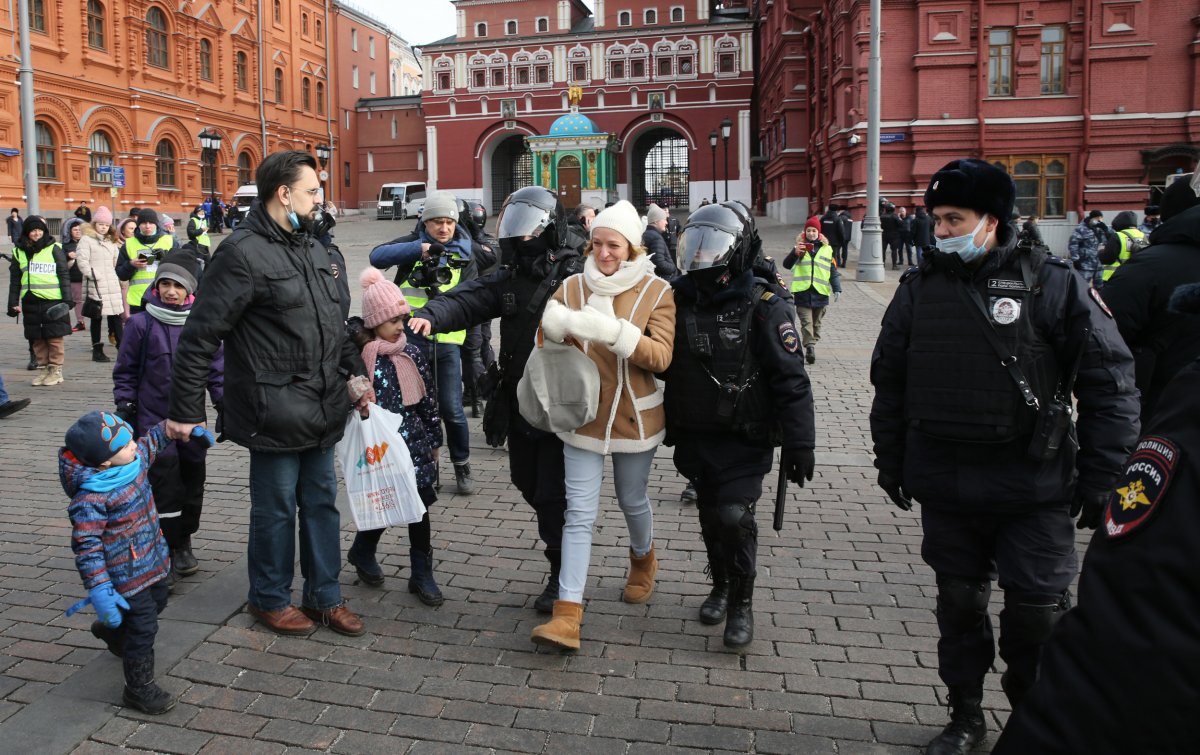A Moscow court has fined a man on Thursday for wearing yellow and blue sneakers, which Russian authorities said was a sign of support for Ukraine.
The man, who hasn't been identified, was accused of wearing "political tools" on his feet when he was found and detained by local authorities in the center of the country's capital near a protest against Russia's war in Ukraine, Radio Free Europe reported.
However, the man's lawyer, Ilya Utkin, said that his 40-year-old client wasn't involved with the protest, and was out buying gifts for his family, according to Radio Free Europe, which also cited reporting from Russian news sources The Insider and MSK1.ru.
The man was fined 10,000 rubles in the Butyrsky District Court, and was originally stopped by police on March 6—a day when major anti-war demonstrations were taking place in the city that saw nearly 2,000 people detained, Radio Free Europe noted.
Newsweek has attempted to reach Utkin for comment.

The fine in Moscow comes as Russia's invasion of Ukraine has dragged on for nearly two months, and after the country has detained thousands of people accused of demonstrating against the war.
Newsweek previously reported that on March 6, the day the man was detained, according to OVD-Info, a human rights organization that is tracking the number of arrests in Russia, police detained more 4,640 people who participated in anti-war rallies in 65 cities across the nation. "At least 30 instances of protesters being beaten have been confirmed and it is likely that this number is much higher. There are many videos on social networks in which police officers are seen beating anti-war protesters," OVD-Info stated in an update on March 6.
At the beginning of the war, Russia's parliament passed a law banning the spread of what the government deemed "fake" information about the invasion or the Russian military. Those who break the law could face up to 15 years in prison. The move prompted major media organizations including the BBC and CNN to suspend work in the country to protect their staff members.
In another recent incident in January, a hearing-impaired man, who only communicates through sign language, was fined after being accused of shouting protest slogans during anti-government demonstrations.
Apologia Protesta (Apology of Protest), a human rights organization, claimed that the man wasn't involved in the protests that day in support of Kremlin critic Alexei Navalny, but was en route to an arts and crafts shop instead.
Meanwhile in March, some anti-war protestors were arrested for holding up blank signs during public demonstrations.
Uncommon Knowledge
Newsweek is committed to challenging conventional wisdom and finding connections in the search for common ground.
Newsweek is committed to challenging conventional wisdom and finding connections in the search for common ground.
About the writer
Xander Landen is a Newsweek weekend reporter. His focus is often U.S. politics, but he frequently covers other issues including ... Read more
To read how Newsweek uses AI as a newsroom tool, Click here.






